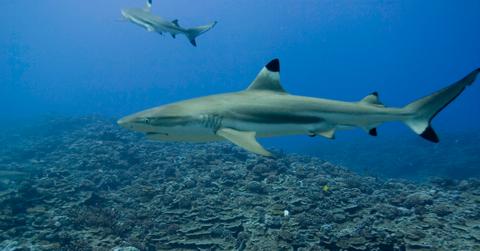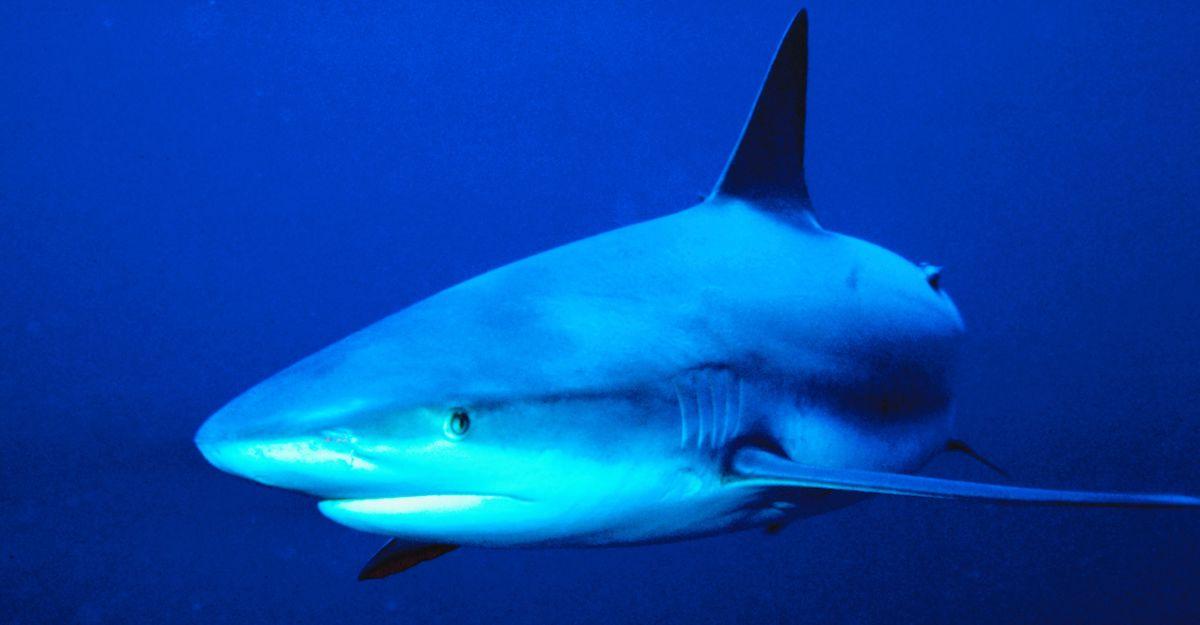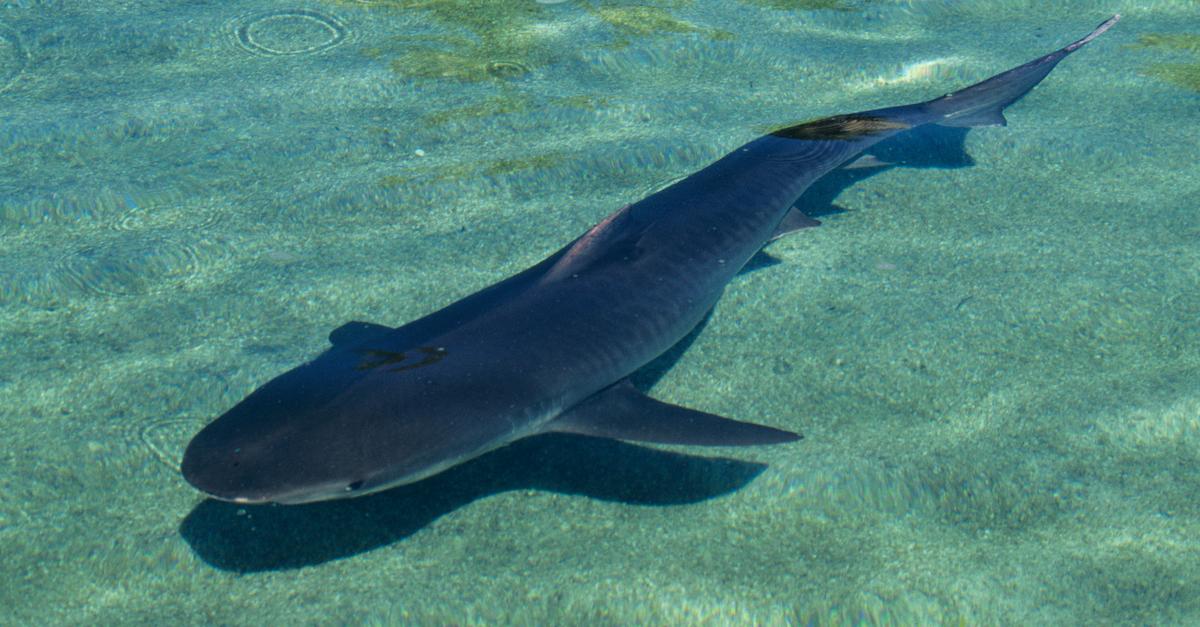Sharks May Be Able to Restore Habitats Damaged by Climate Change — But They're Dying Out
Published March 23 2021, 4:57 p.m. ET

The effects of climate change are becoming more and more visible as we fail to find eco-friendly alternatives to notoriously pollutive human activities. However, the effects are becoming increasingly apparent underwater — deep sea predators like sharks are rapidly dying out, which is expected to further exacerbate habitat degradation more than anything else, according to a recent study published in the Journal of Animal Ecology,
“Our results suggest that changes to herbivore behaviors triggered by loss of predation risk can undermine ecological resilience to [extreme climactic events], particularly where long‐lived herbivores are abundant,” the study reads.
Keep reading for more on this unexpected discovery.

The study shows shark extinction could be diabolical to global ecosystems.
The Journal of Animal Ecology's latst study looked at what would happen if tiger shark populations in Western Australia's Shark Bay plummeted. In reality, tiger shark populations in the area have already plummeted by 70 percent, but this study — led by researchers from Florida International University, the University of Washington and Australia's Deakin University — simulated what would happen if they went completely extinct, and the results were somewhat shocking.
In Shark Bay, tiger sharks mainly feed on seacows, which are also known as dugongs. If the sharks were to totally die out, sea cow populations would flourish, and increase rapidly. And, if that were the case, there wouldn't be enough seagrass to go around, which is a main staple of their diets. Seagrass, which has already been irreparably damaged by rising temperatures as a result of climate change, would be in higher demand than ever.
Between too-hot temperatures and an influx of seacows, the seagrass wouldn't be able to regenerate quickly enough. Other animals that feed on seagrass would start to die out, and those that rely on seagrass meadows for shelter would be displaced. Eventually, this would affect the seacows negatively, as well, and biodiversity would be thrown completely.

Why are sharks imperative to maintain these habitats?
By preying on seacows, which eat seagrass, tiger sharks are effectively maintaining the undersea habitat in Shark Bay.
“The tiger sharks are protecting the seagrass from being grazed. The big seagrass is not the dugongs’ [sea cows] favorite food, which is the little seagrass that moves in when there is a disturbance. But we find that the bigger seagrass doesn’t come back when it is disturbed so often by the grazing." Dr. Mike Heithaus, who co-authored the paper, explained to The Independent.
"When everything is hunky dory, we might not realize how important predators are. But when things go wrong – like a climatic event – that’s when you can see the importance of predators," he continued.
How can we protect sharks?
Oceana is a marine-focused organization that advocates for undersea conservancy, and they are currently running a petition against shark finning. Another charity called Shark Trust and OP Society are also always accepting donations to protect sharks and other marine wildlife, and Project Aware is constantly looking for funds to continue cleaning up the ocean.
But we need to save the sharks on a larger scale. Rising water temperatures, for example, are affecting the cold blooded creatures more than anything else, and so are careless commercial fisherman, who accidentally catch them and release them as bycatch. Therefore, it's important to advocate for policies that will curb climate change, and improve our relationship with planet Earth's wildlife — it's the least we can do right now.